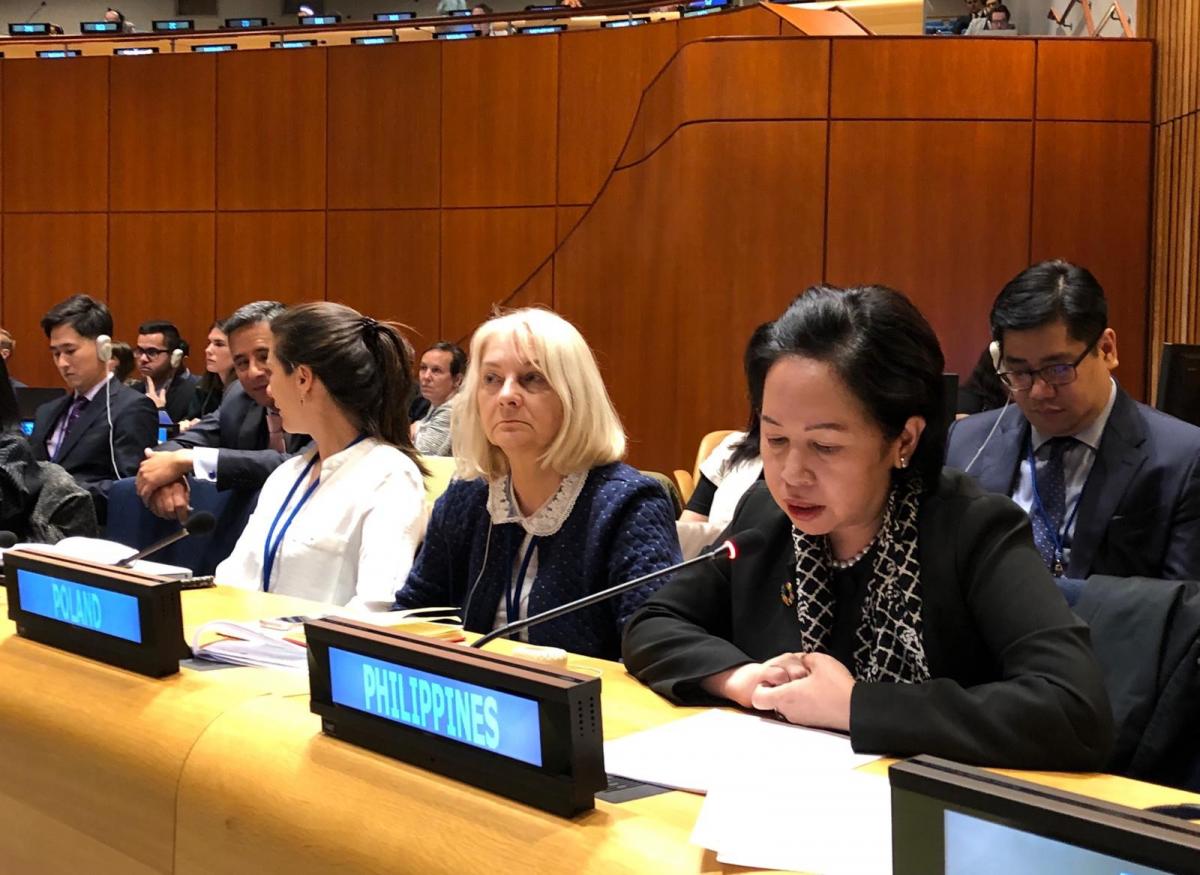
DOF Assistant Secretary Maria Edita Z. Tan emphasizes that the Government, guided by the Philippine Development Plan 2018-2022, expands its infrastructure spending through an optimal mix of local funding, official development assistance (ODAs) from development partners, and Public-Private Partnership (PPP).
16 April 2019, New York – Assistant Secretary Maria Edita Z. Tan, International Finance Group of the Department of Finance (DOF), championed key initiatives of the Philippines on financing for development towards the achievement of the 2030 Agenda on Sustainable Development Goals at the general debate of the 2019 Economic and Social Council Financing for Development Forum Follow up held on 16 April 2019 at the UN Headquarters, New York.
Assistant Secretary Tan underscored that the country’s inclusive, high-growth story is backed by strong macroeconomic fundamentals and affirmed that the Philippines remains on track to join economies in the upper middle income status in the medium term.
She said that the Philippines has put in place an inclusive financial system, a broader tax system, an economy driven by investments to provide quality jobs, and a high quality infrastructure plan that will both improve the quality of life for Filipinos and make its economy competitive.
“To support a more inclusive and sustainable growth, the Philippines has embarked on a massive infrastructure development through the Build! Build! Build! Program. This will help make the economy fully competitive, create jobs, open more business opportunities, bring down logistics costs and realize better-distributed growth,” Assistant Secretary Tan stated.
“The Government, guided by the Philippine Development Plan 2018-2022, expands its infrastructure spending through an optimal mix of local funding, official development assistance (ODAs) from development partners, and Public-Private Partnership (PPP),” she further said.
Assistant Secretary Tan stressed that at the core of this strategy is the sustained fiscal discipline where debt is kept at manageable levels currently at 41.9% of GDP to ensure financial strength to support the massive infrastructure program intended to provide a strong stimulus for domestic economic activity,” she said.
She also cited the Philippines’ comprehensive tax reform program (CTRP) which aims to create a more equitable, simple and more effective tax system, promote investment, create jobs, and reduce poverty. The CTRP will assure the country of sufficient revenues to fund the infrastructure modernization and expand social services such as the Universal Health Care and free tuition in state universities and colleges.
The Philippines is also actively working to create a business environment conducive to the mobilization of private sector resources. In 2018, for example, a new law, Personal Property Security Act (PPSA), was introduced to pave the way for the use of alternative assets such as inventory and accounts receivables as collateral for credit.
Assistant Secretary Tan underscored that the Ease of Doing Business Act of 2018 aims to reduce red tape significantly and make the government more responsive to the needs of entrepreneurs especially the Micro, Small and Medium Enterprises (MSMEs) as it would be easier to implement peer-to-peer lending, equity crowdfunding, merchant and e-commerce finance, and invoice finance.
The Financing for Development Forum brings together ministers, high-level officials from ministries of finance, foreign affairs and development cooperation, executive directors of the World Bank and IMF, as well as senior officials from the UN system, including the major institutional stakeholders, and other international organizations. END


